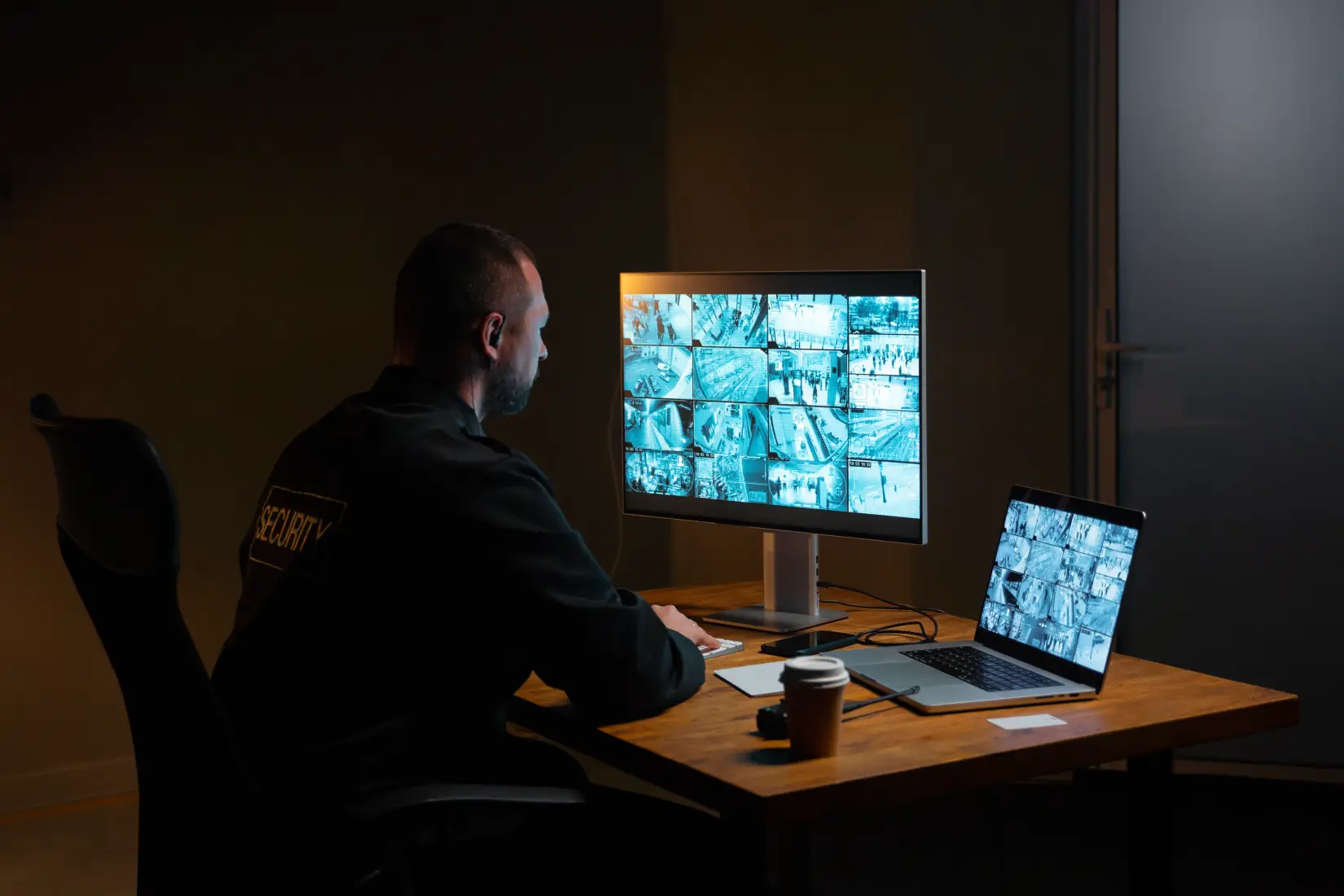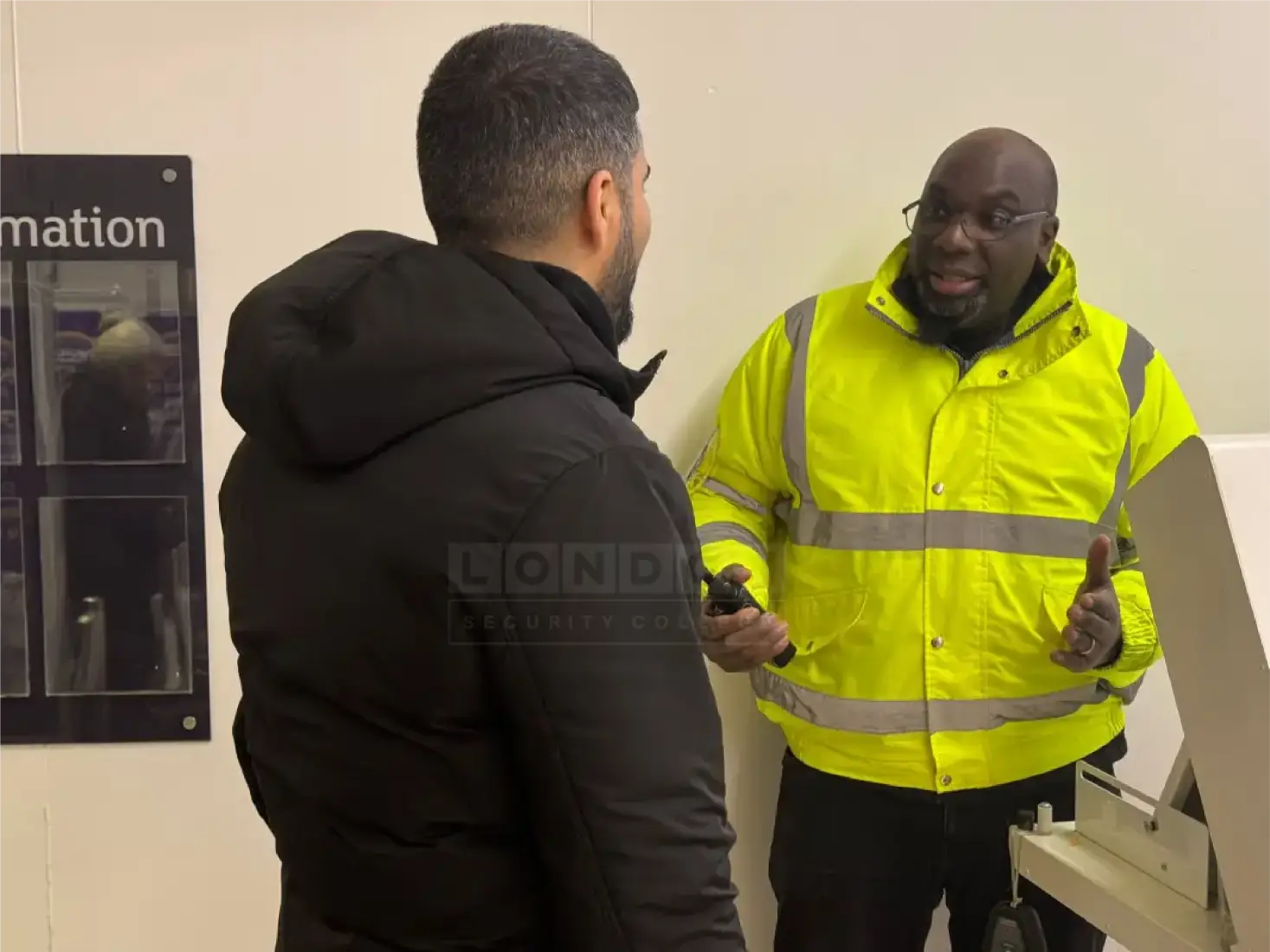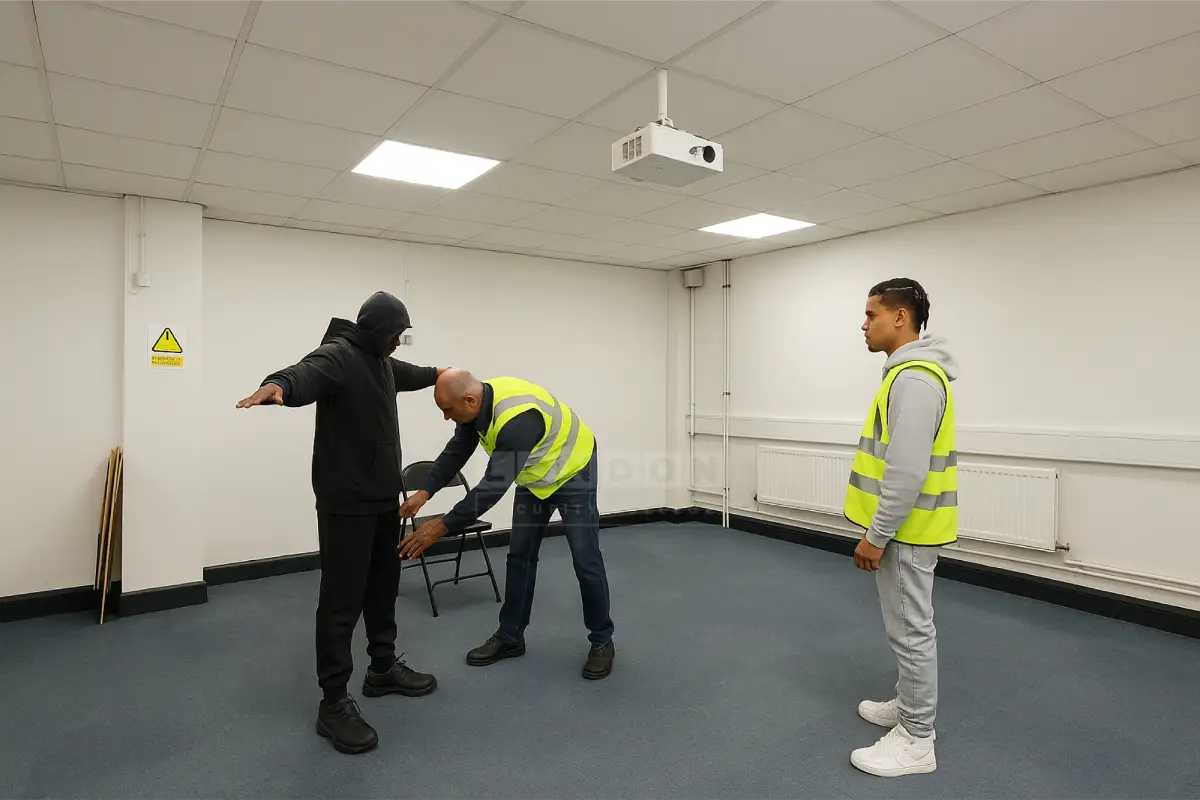
How Security Control Rooms Play a Critical Role in Responding to Terrorist Incidents
By London Security College Is Your Licence Near to Expire? SIA Refresher Training + First
Home » How Security Control Rooms Play a Critical Role in Responding to Terrorist Incidents
SIA Refresher Training + First Aid– Keep Your Licence Active! Only £199
Terrorism remains one of the most significant security challenges facing the United Kingdom. From the devastating London bombings in 2005 to more recent lone-wolf style attacks, it is clear that preparation and rapid response can save lives. At the centre of this preparation are security control rooms—the nerve centres where vigilance, communication, and coordination come together to manage threats effectively. At London Security College, we understand that strong control room operations are a cornerstone of national and organisational security.
Security control rooms act as the “brains” of any security operation. They are not just about watching CCTV screens but about integrating technology, intelligence, and human expertise to respond effectively to threats. In the UK, control rooms play a vital role in:
Real-time monitoring across critical locations like airports, railway stations, shopping centres, and government buildings.
Ensuring compliance with UK counter-terrorism standards and legislation.
Rapid response coordination with law enforcement, ensuring that localised incidents do not spiral out of control.
When terrorist incidents unfold, the control room becomes the decisive link between observation and action.
Early Detection Saves Lives
The UK’s counter-terrorism strategy (CONTEST) places a strong emphasis on prevention. Control rooms support this by:
Detecting suspicious behaviour—such as hostile reconnaissance or unusual crowd movement—through CCTV and behavioural monitoring.
Using AI-assisted surveillance systems that automatically flag anomalies.
Reporting concerns immediately to police and counter-terrorism units, giving responders critical time to intervene.
By spotting threats before they escalate, operators play a pivotal role in the UK’s “Prevent” and “Protect” strands of national counter-terrorism strategy.
In the chaos of a terrorist incident, clear leadership and communication are vital. Security control rooms provide:
Centralised command structures to direct security teams and liaise with emergency services.
Calm and structured communication, reducing panic for both staff and the public.
Integration with UK emergency response frameworks, including JESIP (Joint Emergency Services Interoperability Principles), which ensures police, fire, and ambulance services work together effectively.
Without this centralised coordination, valuable time could be lost—time that is critical in saving lives.
London and other UK cities host thousands of public events annually. In the event of a terrorist incident, evacuating crowds safely is one of the most challenging tasks. Control rooms:
Activate public address systems and emergency alarms.
Direct people towards safe exits while monitoring CCTV to avoid dangerous bottlenecks.
Provide emergency responders with updates on crowd flow, hazards, or secondary threats.
Whether in football stadiums, concert arenas, or transport hubs, this structured evacuation management is essential for public safety.
Modern UK security control rooms are equipped with state-of-the-art systems—high-definition CCTV, facial recognition, and advanced analytics. But technology alone is not enough. The true value lies in skilled human operators who:
Analyse data in context and make fast, informed decisions.
Understand cultural and behavioural nuances within UK settings.
Remain calm under pressure, ensuring professional judgment guides the response.
Training ensures operators can harness technology while applying critical thinking and sound decision-making.
At London Security College, we train professionals to be fully prepared for terrorist threats in the UK. Our programmes cover:
Crisis management and leadership under pressure.
Effective use of surveillance and monitoring systems.
Familiarity with UK counter-terror legislation and CONTEST strategy.
Scenario-based training simulating real-life terrorist incidents.
Communication skills for interacting with law enforcement, staff, and the public.
Our courses are tailored for the UK context, ensuring learners understand both local and national security frameworks.
Security control rooms are more than just monitoring stations—they are lifelines. They connect people, technology, and strategy into a single coordinated response to terrorism. For the UK, with its global profile and high-value targets, this capability is non-negotiable.
By investing in skilled operators and high-quality training, the UK strengthens its resilience against terrorism and ensures its communities remain safe.
At London Security College, we can help you through the entire process—from SIA training to application support. Contact us if you need help preparing documents, applying online, or choosing the right course.

By London Security College Is Your Licence Near to Expire? SIA Refresher Training + First

By London Security College Is Your Licence Near to Expire? SIA Refresher Training + First

By London Security College Is Your Licence Near to Expire? SIA Refresher Training + First

By London Security College Is Your Licence Near to Expire? SIA Refresher Training + First


Fill in the form below